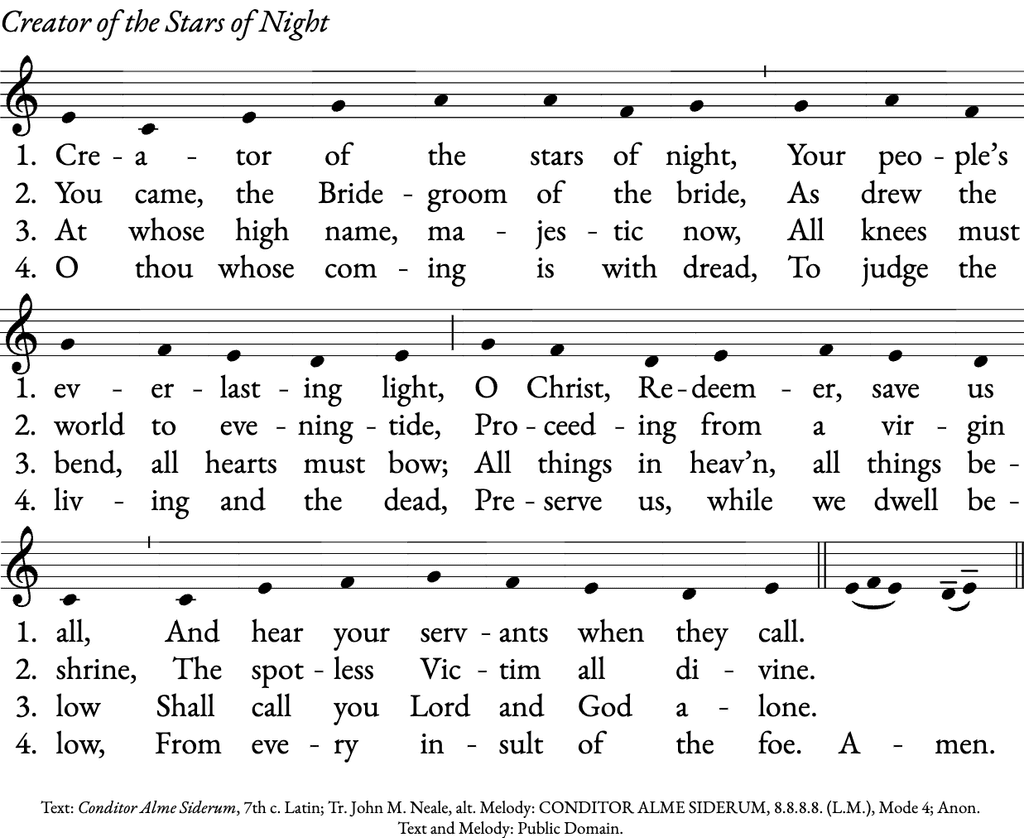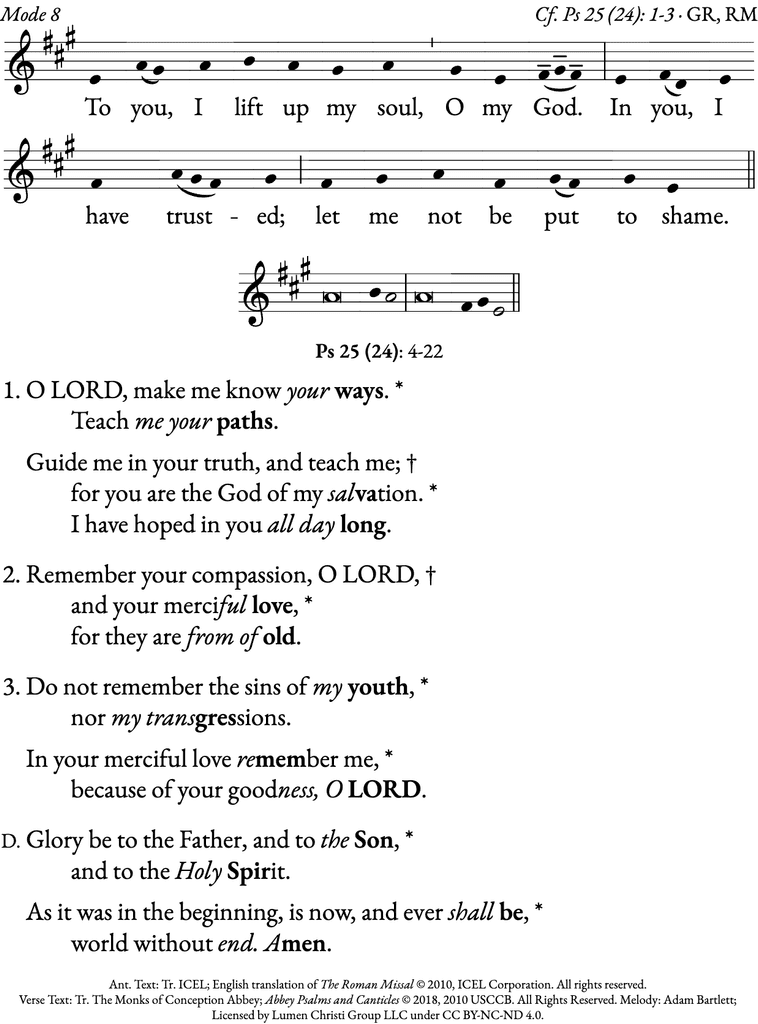Preparing for Holy Week, Part 5: Easter Sunday
Adam Bartlett
Mar 21, 2024
This is the fifth part in a 5-part series on the music of Holy Week. Click here to view Part 1 (Palm Sunday), Part 2 (Holy Thursday), Part 3 (Good Friday), and Part 4 (The Easter Vigil).
—————
With all of the details that are involved in preparing for the Paschal Triduum, it can be easy to overlook its fruition on Easter Sunday morning. And that is why this series isn’t ending with the Easter Vigil, but with the Easter Sunday of the Resurrection of the Lord at the Mass during the Day.
As a parish musician, Easter Sunday usually comes as a welcome relief. And after giving your all on the previous evening, and often into the early hours of morning, the principal celebration of the entire liturgical year can come as something of an afterthought. It can be tempting to let your choir have the morning off so that they can get an early start on their Easter celebrations, and to put everything else on autopilot.
Priests surely will feel some fatigue and might be inclined to push through Easter Sunday with an eye toward Easter dinner and their annual Paschal Solemn High Nap that awaits. Resist these temptations! Easter Sunday is the day that every other Sunday of the year points to, and it should be the height of your liturgical and musical efforts to the extent that it can be.
Here are some helpful tips, along with scores and audio recordings from Source & Summit, to help you prepare for a beautiful and solemn Easter Sunday at your parish:
Easter Sunday Preparation Guide
The form of the Mass for Easter Sunday, happily, returns to the one that we’re most familiar with, but with a few added elements including the Easter Sequence and the Easter Dismissal. The Renewal of Baptismal Promises may optionally be used in place of the Creed, according to the form used in the Easter Vigil, and the Sprinkling Rite is encouraged by the General Instruction of the Roman Missal during Easter Time.
The antiphons of Easter Sunday also can bring added solemnity to the Easter Mass of the Day. Parishes sometimes introduce more chant along with the proper antiphons during Lent, however we should not lead our parishioners to believe that chant is a penitential practice! The chants of Easter have their own beauty and solemnity and they can be sung with great joy and enthusiasm, while leaving plenty of room for all of our beloved Easter hymns.
The Easter Sequence
There are four Masses in the liturgical year that include sequences, and two of them are optional. For Easter Sunday, and the outset of the Easter Season, as well as Pentecost Sunday, at its conclusion, the sequence is required. The Easter Sequence is also sung or recited throughout the entire Octave of Easter.
According to the GIRM, the Sequence is sung before the Alleluia with all seated. Interestingly, this is in contrast with the Introduction to the Roman Gradual and Ordo Cantus Missae (Order of the Sung Mass), which places the Sequence after the Alleluia. If it is sung before the Alleluia, singing it unaccompanied and more immediately following the Second Reading might encourage those in the pews to remain seated rather than standing for what they expect to be the Alleluia. If the rubric of the Graduale Romanum is followed instead, then that risk is likely to be mitigated altogether.
The Introduction to the Ordo Cantus Missae also states that the Sequence is ordinarily sung either in alternation between two or more cantors and the entire choir, or between two sections of the choir. Of course, if there is no choir it can be sung by necessity by a single cantor or even by the priest celebrant in the absence of a cantor. The typical alternation in the singing of the Sequence occurs between verses, following the double barline in the chant melody. It should be noted that the Sequence is not put forth by the liturgical books as a congregational song. Much like the readings and the verses of the Responsorial Psalm and Alleluia, it should be listened to attentively and prayerfully by all.
Here is a chant setting of the Easter Sequence, Christians, to the Paschal Victim, as it is found in the Source & Summit Gradual:

Easter Sunday: The Easter Sequence
Easter Sunday Antiphons
The antiphons of the Mass of Easter Sunday are profound, and worthy to be sung on Easter Sunday and throughout the Easter season. Since most parishes begin the Easter Mass of the Day with a literal or figurative trumpet blast and a triumphant hymn, it would be best to sing the Entrance Antiphon at the conclusion of the hymn and during the incensation of the altar. The antiphon alone could be sung by a cantor or the choir, or sung by the entire congregation after it is first sung by a cantor. Additional verses can be added as needed to cover the liturgical action, but it should conclude when the priest reaches the chair.
When the chanted Entrance Antiphon proceeds directly into the sung Introductory Rites and a sung Order of Mass, a solemn tone is set for the entire liturgy. In the words of the Constitution on the Sacred Liturgy of the Second Vatican Council, “liturgical worship is given a more noble form when it is celebrated in song, with the ministers of each degree fulfilling their ministry and the people participating in it” (see SC 113). And Musicam Sacram adds that “Pastors of souls will therefore do all they can to achieve this form of celebration” (see MS 5). The GIRM also states that “in the choosing of the parts actually to be sung, preference is to be given to those that are of greater importance and especially to those which are to be sung by the Priest or the Deacon or a reader, with the people replying, or by the Priest and people together” (see GIRM 40).
On this “Feast of Feasts” and “Solemnity of Solemnities,” how much more appropriate is it for priests to take up the Church’s call to sing their parts of the Mass than they might on any other Sunday?
The Offertory and Communion Antiphons add different dimensions to the Resurrection of Christ with texts from Psalm 76 (75), 1 Corinthians 5, and Psalm 118 (117). The Offertory Antiphon can be sung prior to an Offertory Hymn, and the Communion Antiphon, which should be sung as soon as the priest receives communion, can be sung with many verses with plenty of time in most cases for a Communion Hymn and choral piece to follow. If Communion Antiphons were sung in your parish during Lent, be sure not to miss the opportunity to continue that practice on Easter Sunday and throughout the Easter Season.
Here are the antiphons of Easter Sunday, the Mass of the Day, as found in the Source & Summit Missal:

Easter Sunday: Antiphons
Pro Tips for Easter Sunday:
If there is any time in the year that priests and deacons might consider chanting the Gospel and Eucharistic Prayer, Easter Sunday should be it.
When the Sprinkling Rite occurs, it replaces the Penitential Act and therefore a Kyrie is not sung. After it concludes, the Gloria begins immediately.
After all that you will have accomplished during Holy Week, be sure to plan time for rest and rejuvenation. You deserve it!
Transform Your Liturgy and Music Preparation
Sign up for a free 30-day trial on Source & Summit and gain instant access to music scores, recordings, readings and rubrics for Holy Week and the Easter Season that you can use to plan, share, print, and practice.


